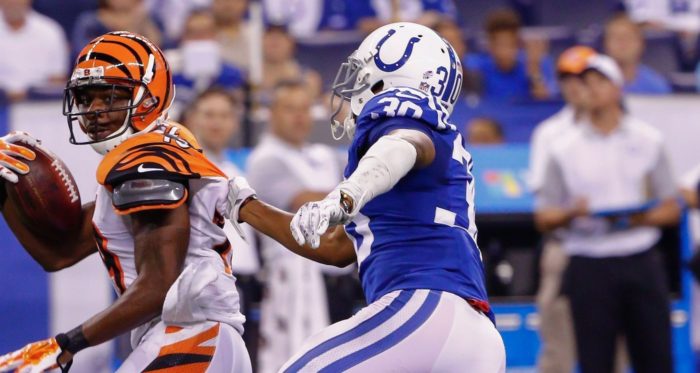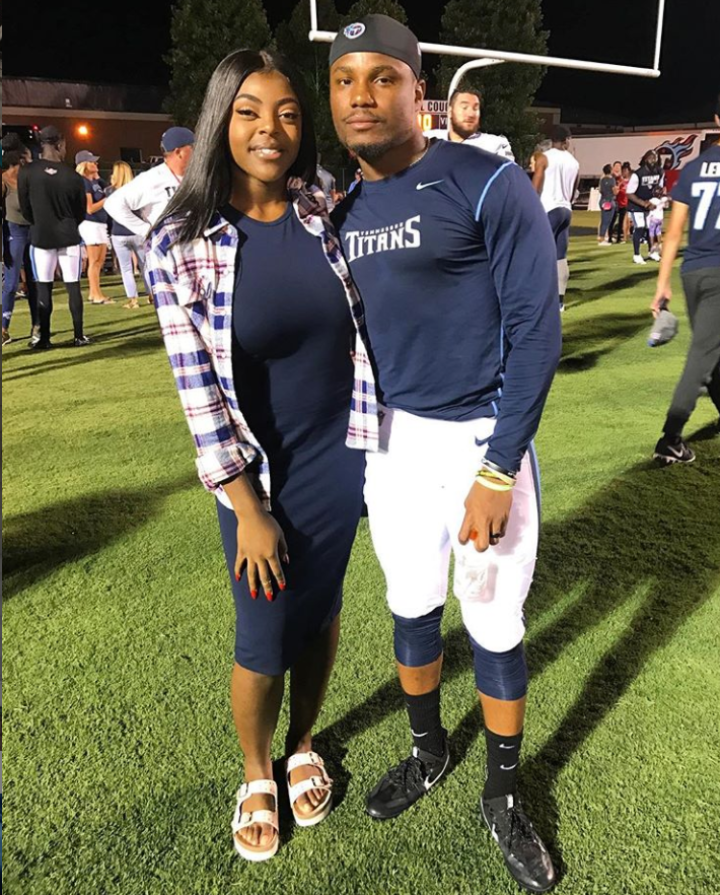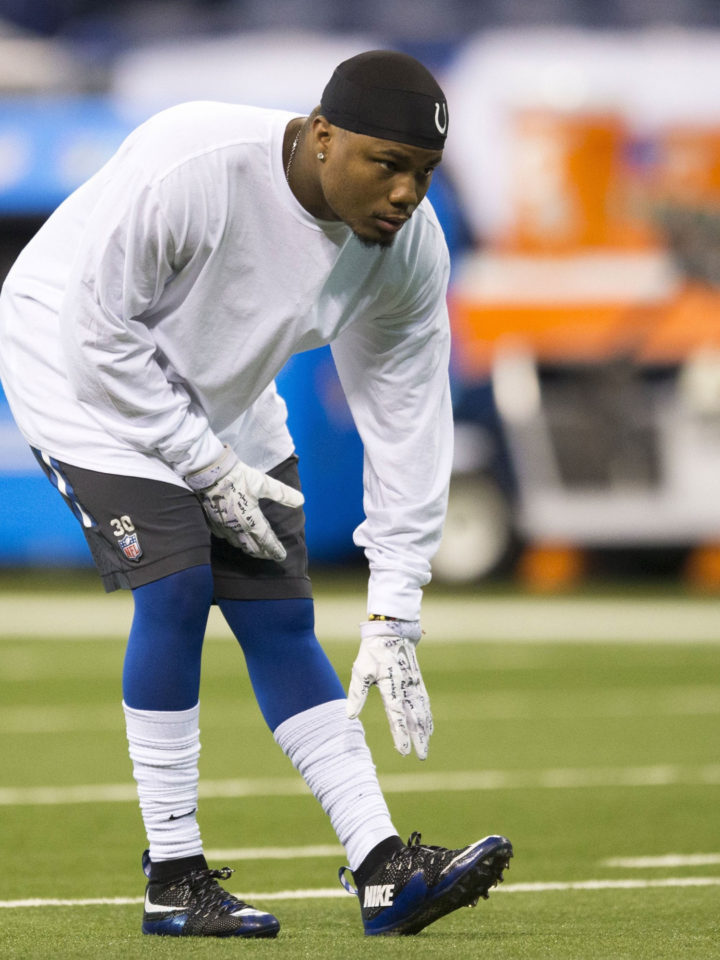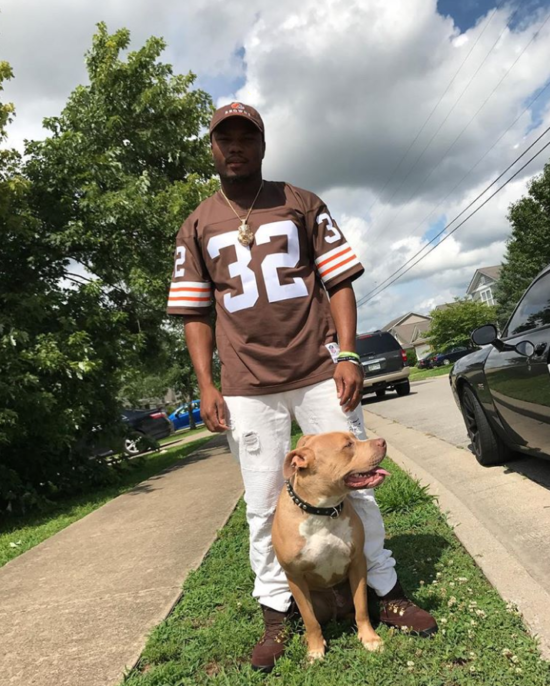My time in the league wasn’t what I thought it would be. Everybody has that dream to get to the NFL, but mine was to be a Pro Bowler and Hall of Famer. But that wasn't God's will for my life. I think I was more accepting of it because I wound up getting hurt my rookie year during preseason. Everything went downhill after that, because I really could never recover from that significant knee injury.
D'Joun Smith

I think the hardest part was understanding that my career was over — not because I couldn't play at a high level or didn’t have the skill — but because my body wouldn’t allow me to move forward with my career. After failing physicals, the hardest part was letting go. I dealt with depression, anxiety and PTSD from everything that happened. I dealt with suicide too. I never turned to drugs or anything to cope, but I guess my suicide was the way that I was going to deal with all the pressure and the pain that I was feeling.
“ I think the hardest part was understanding that my career was over — not because I couldn't play at a high level or didn’t have the skill — but because my body wouldn’t allow me to move forward with my career. ”

The crazy part is — this is why I love my journey so much. It's like an obstacle course. Different parts of the course are going to be easier for you, while some parts are going to be strenuous. After going through the knee injury my rookie year, I wound up going into my second year with my knee still not cooperating. It was difficult to bear, and I felt like I was alone.
I wasn't communicating with my family because I had stayed with the team for seven months to rehab. I was dedicated, and I kept telling myself I was going to come back — but ultimately it got worse. This is around the time I met my wife, and honestly, I feel that was God sending her at the right time when I felt alone and was struggling with my faith.
She reached her hand out when I was sinking and kept me from falling, which is one of the reasons I didn't have the courage to pull the trigger or anything like that. She brought light into a tunnel that was dark. We all need help in this journey.
“ She reached her hand out when I was sinking and kept me from falling, which is one of the reasons I didn't have the courage to pull the trigger or anything like that. She brought light into a tunnel that was dark. We all need help in this journey. ”

As men, we've been taught for so long that we don't need a psychiatrist or a “shrink”. So, suppressing my emotions was draining. I wasn't going to go see a psychologist —I refused to see one. I thought I could figure it out by myself. But man, I needed help. I couldn't deal with the issues that I was going through, because I had never felt like that. I had never been a person that felt alone. Suddenly, I could be in a room full of people and feel like I'm by myself.
I couldn't figure out what I wanted to do with myself. My wife encouraged me to go forward with seeing a psychologist, because I was mentally jacked up. At any moment, I could be switched into a bad mood and be stuck like that for 40 minutes, a full day, who knows. Around October 2019, I saw a psychologist. I was just honest and transparent with her.
Because I believe if somebody would’ve been transparent with me and given me a blueprint, I probably would have learned the in-and-outs and wouldn’t have felt by myself. Like, “Okay young buck, here is the stuff that might happen to you. This is a plan of action.” I don't want another player to go through the pain that I went through. Nobody has given them a game plan. So, when they run into issues, they don’t know how to operate. Their ideology is football. When football goes up, they go up, and when football goes down, they go down. And it should never be like that.
My version of success is opening up the door (for younger athletes). I’ll become a successful speaker and successful real estate agent, because football was the end-all-be-all for me, but I broke out of it. At a point through my depression and suicide, I couldn't do anything without football. I couldn't focus. I couldn't think of anything else. That didn’t make any sense. But now I see that everything happens for a reason.
“ At a point through my depression and suicide, I couldn't do anything without football. I couldn't focus. I couldn't think of anything else. That didn’t make any sense. But now I see that everything happens for a reason. ”

I want to be a lifeline for the up-and-coming guys, and help represent them. I also want to do motivational speaking, and I should have my first contract set up around November with my alma mater to go and speak about life and everything that can happen.
Because stuff is going to happen. Life is going to hit you — right in your mouth. And some people might get hit harder than others, but it's about getting up. If I can get you prepared for the hit, you might be able to react to it better. If you have some type of guidance and wisdom coming into a situation, it's much less stress on your brain.
Most of the time at eight o’clock, I get on this thing called “Christ Trainer” — It’s a bunch of former athletes that discuss the bible. That’s like my breakfast in the morning. My second thing is being intentional with what I do for my wife, because she is my responsibility and my blessing that God gave me. If He didn’t send me her at that time, I don’t know if I’d be here.
I also bought a dog when I was feeling alone. He is my best friend — like my emotional support dog. And I try to stay occupied and talk to as many guys as I can. I try to be intentional throughout the day, with a smile on my face, even if the day is hard. Even if I’m upset with where I’m at. I know there is a reason why God chose me to go through this. As my life is starting to turn around, and I’m starting to go back to school, work to get my insurance license and begin speaking — it’s about keeping my faith.
We live at a fast pace in life, and we miss out on a lot of stuff because we moving so fast. You miss out on family, kids, and some of the essential things of life. I think this experience really sits you down and makes you slow down for a second.

The Trust is here to support you.
Ready to learn how?
Related Spotlights
Sean Cattouse
How Therapy Transformed His Life & Paved the Way for Impacting His Community